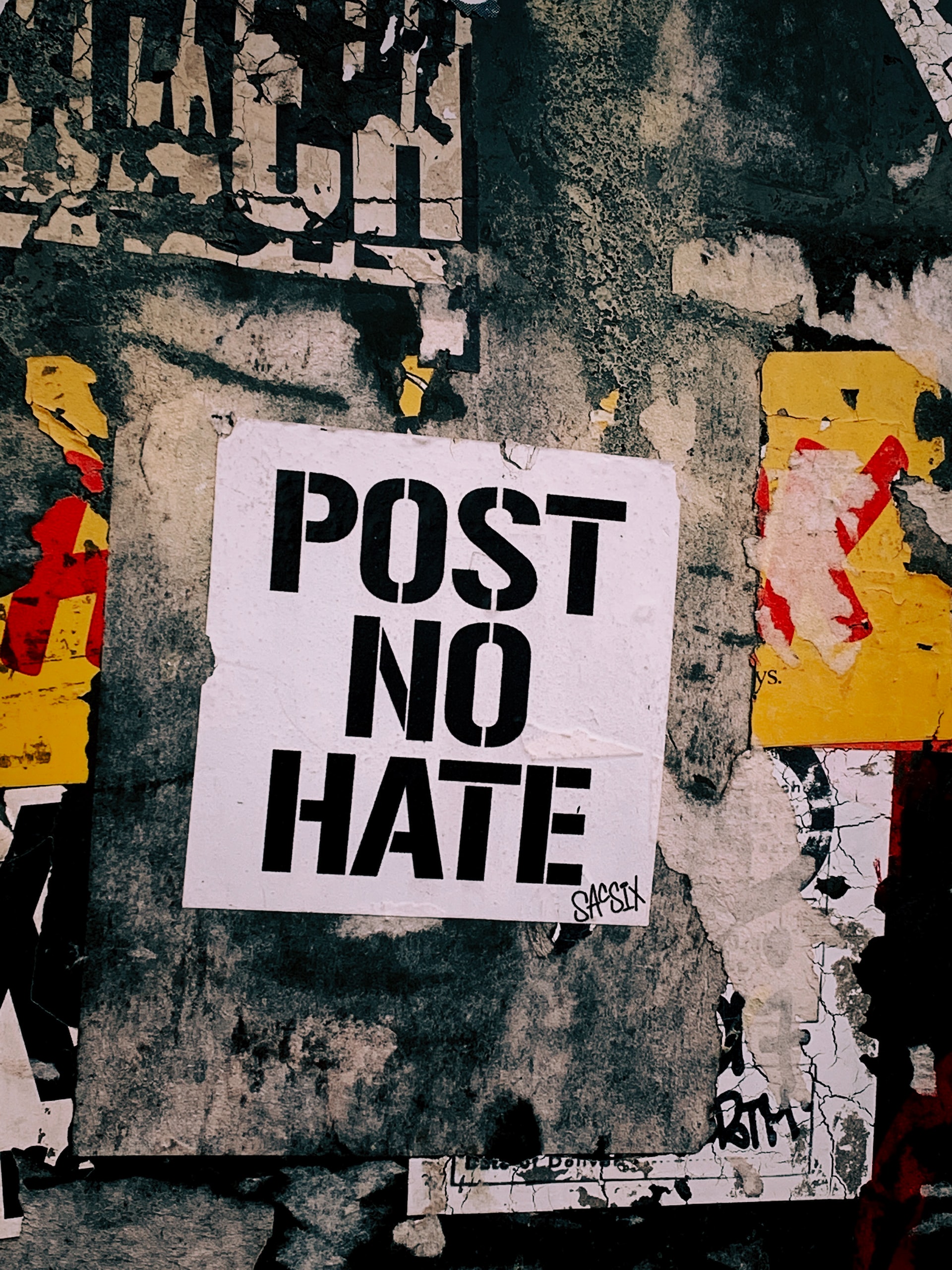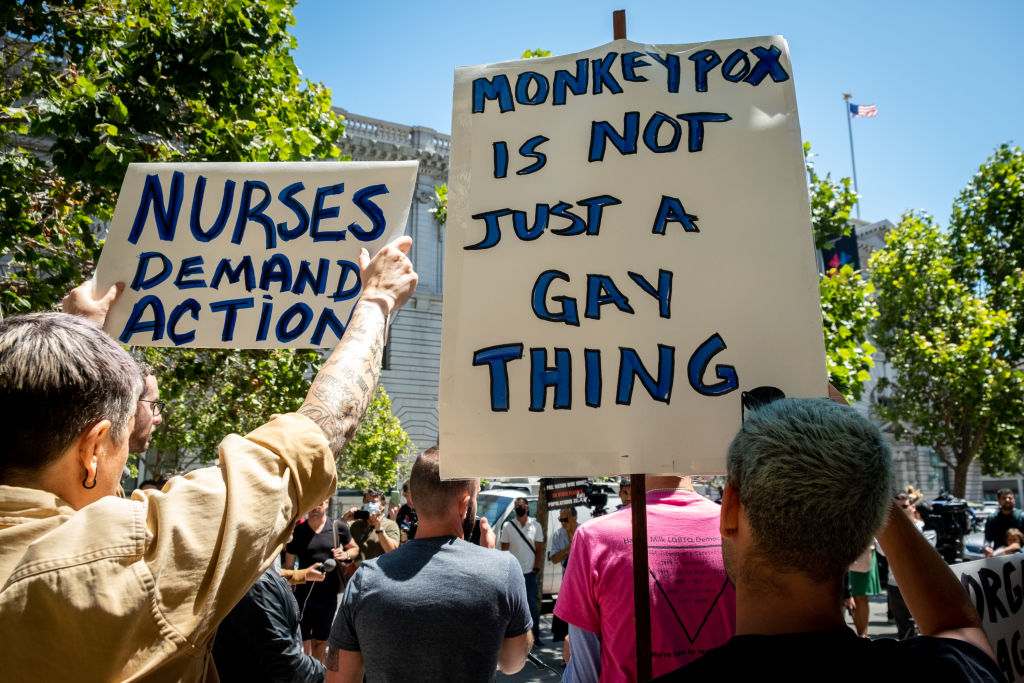Disinformation and online manipulation in the LGBTQI+ community
The concepts of disinformation and online manipulation may seem abstract, but their effects ripple through our societies and have real-life consequences, that are especially visible in cases concerning the LGBTQI+ community.

Tilt contributes to information resilience, by making inspiring and creative solutions to tackle online manipulation, notably disinformation. In this article, we researched examples of historic disinformation that touched the community and looked at more recent examples of online manipulation that has harmful consequences.
Pride, and narratives throughout history
June 2022 is Pride Month. The month where the LGBTQI+ community celebrates their identities and have the opportunity to promote their dignity, equality and increased visibility. Although over the last decades a lot of improvements have been made, the community still suffers from discrimination in many forms. The LGBTQI+ community has historically been the victim of disinformation and the current digital age that we live in has led to an increase of misinformation about the topics of sexuality and identity. Online manipulation is an increasing problem, as it leads to real life consequences such as hate speech, vandalism, arson, assault and murder.
Throughout history, the LGBTQI+ community has suffered marginalization and discrimination. A notorious example of disinformation disadvantaging the community is “Operation Infektion”: an active measure disinformation campaign run by the KGB to plant the idea that HIV/AIDS was a disease invented by the United States. The groundwork for the operation was laid in 1983 with an anonymous letter from “a well-known American scientist” that claimed that AIDS was developed in a secret biological weapons laboratory in Fort Detrick. In 1985, Soviet Reporting on “the Segal Report” started, which fostered ideas of the virus being man-made. The Soviet strategy was to have stories published outside of the USSR and present them within the Union as the investigative work of others.
This type of disinformation can have real consequences for the people involved. The stigma around AIDS grew, leading to people not getting tested out of fear to be outed as homosexual. Consequently, people died of a disease that could have been prevented. Furthermore, the stigma of homosexuals being infected with a dangerous disease lead to an increase in crime against them.
Analyzing indicators of online hate speech
Through the Internet, the LGBTQI+ community faces the challenge with the community often being the target of disinformation. To indicate the presence of hate speech on social media, we analyzed Dutch-language Twitter using Tilt Insights, which uses a combination of automated data collection and human interpretation. The analysis was carried out using a list of ten Dutch and internationally used words that implicate or can be used to express hate towards the LGBTQI+ community.
- Tranny
- “Echte man” (real man)
- Transgender
- “Echte vrouw” (real woman)
- Super Straight
- Kankerhomo/Kankerhomo’s (Dutch anti-gay slur)
- Travestiet (transvestite)
- Baphomet
- Kuthomo’s/Kuthomo (Dutch anti-gay slur)
- Kut AND trans (curse AND trans)
The list of keywords used in data analysis around LGBTQI+ hate speech
From January 1st 2022 to June 21st 2022 we found 12,708 tweets of 7,212 individual accounts referring to LGBTQI+ related subjects. A few of the conversations we found discuss the requirements of being either a man or a woman. We find a conversation that peaks the diagram on March 27th that discusses beauty ideals rather than someone’s sexual orientation.
In order to research the hate speech that occurs towards the LGBTQI+ community we downsized the original list to four explicit hateful words (tranny, kuthomo(‘s), kankerhomo(‘s), kut AND trans). To explicitly analyze hate speech we downsized our list to four explicit hateful words, which results in 1,143 tweets. Remarkably, more than half of them (614 to be precise) use the word ‘baphomet‘, a half-human/half-animal demigod used to denote binaries, when referring to transgender people. Baphomet is also used to express hate towards leaders and the elite. Following this, we see that the word ‘transgender’ is used as a curseword, as the people who are being attacked are called a ‘tranny’ as a derogatory term.
Although this analysis only covers a small portion of the words used to express hatred toward the LGBTQI+ community, is it sure that hate speech is present. It seems that the hate is not specifically towards people that are coming out as queer, but that labels like ‘transgender’ are being used to shame and curse people. The hashtags around LGBTQI+ are not necessarily used to express hate at the community, but they are used to push certain narratives forward.
The LGBTQI+ community has suffered from disinformation throughout history and is now facing a new challenge as online manipulation is increasing. Research shows a recurrence of using existing hate against LGBTQI+ to strengthen existing narratives, such as anti-U.S. hate in the case of Operation Infektion. Tilt strives to make a difference in society by increasing resilience against harmful online misinformation. This is why we use our expertise to increase knowledge about the real-life problems that online misinformation causes, by increasing awareness of the problem through our analytics tool and working together with other organizations to create solutions tailored to the client’s needs.










